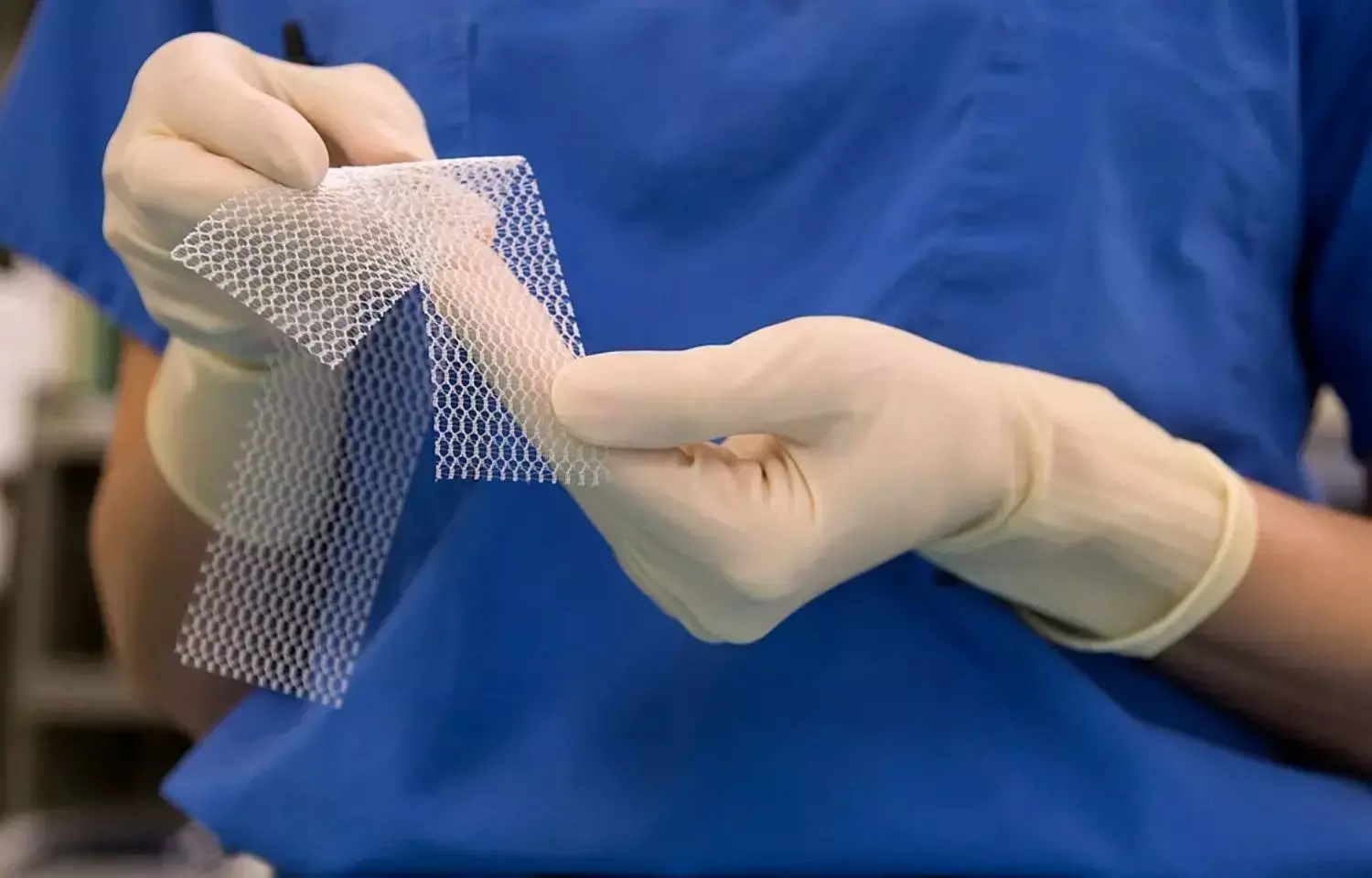- Home
- Medical news & Guidelines
- Anesthesiology
- Cardiology and CTVS
- Critical Care
- Dentistry
- Dermatology
- Diabetes and Endocrinology
- ENT
- Gastroenterology
- Medicine
- Nephrology
- Neurology
- Obstretics-Gynaecology
- Oncology
- Ophthalmology
- Orthopaedics
- Pediatrics-Neonatology
- Psychiatry
- Pulmonology
- Radiology
- Surgery
- Urology
- Laboratory Medicine
- Diet
- Nursing
- Paramedical
- Physiotherapy
- Health news
- Fact Check
- Bone Health Fact Check
- Brain Health Fact Check
- Cancer Related Fact Check
- Child Care Fact Check
- Dental and oral health fact check
- Diabetes and metabolic health fact check
- Diet and Nutrition Fact Check
- Eye and ENT Care Fact Check
- Fitness fact check
- Gut health fact check
- Heart health fact check
- Kidney health fact check
- Medical education fact check
- Men's health fact check
- Respiratory fact check
- Skin and hair care fact check
- Vaccine and Immunization fact check
- Women's health fact check
- AYUSH
- State News
- Andaman and Nicobar Islands
- Andhra Pradesh
- Arunachal Pradesh
- Assam
- Bihar
- Chandigarh
- Chattisgarh
- Dadra and Nagar Haveli
- Daman and Diu
- Delhi
- Goa
- Gujarat
- Haryana
- Himachal Pradesh
- Jammu & Kashmir
- Jharkhand
- Karnataka
- Kerala
- Ladakh
- Lakshadweep
- Madhya Pradesh
- Maharashtra
- Manipur
- Meghalaya
- Mizoram
- Nagaland
- Odisha
- Puducherry
- Punjab
- Rajasthan
- Sikkim
- Tamil Nadu
- Telangana
- Tripura
- Uttar Pradesh
- Uttrakhand
- West Bengal
- Medical Education
- Industry
Self-cut surgical mesh tied to better outcomes in Transvaginal Treatment of Severe Pelvic Organ Prolapse

China: A new study conducted by Juan Chen and the team found that self-cut surgical mesh procedures had a composite surgical success rate that was comparable to commercial mesh-kit procedures and resulted in a 40.4% decrease in inpatient costs. The findings of this study were published in the Journal of the American Medical Association.
Transvaginal mesh (TVM) may be necessary in some circumstances despite worries about mesh-related problems since it might prolong vaginal surgical operations for pelvic organ prolapse (POP). This study was carried forward for the surgical treatment of women with POP, to verify if the self-cut mesh method is more successful, safe, and affordable than a commercial mesh-kit surgery.
In 11 hospitals across 8 Chinese provinces, this multicenter, randomized noninferiority clinical study was carried out. Between January 22, 2018, and November 11, 2019, a total of 336 women with symptomatic stage 3 to 4 POP were recruited, and follow-up continued until December 11, 2020. Using the same titanium-coated polypropylene mesh, participants were randomly assigned to have a TVM treatment using either self-cut mesh or a precut commercial mesh kit. Composite surgical success at 1 year, which was defined as no vaginal bulge symptoms, no further POP retreatment, and no vaginal prolapse at or beyond the hymen, was the key end measure.
The key findings of this study were:
1. 169 patients were randomly assigned to the self-cut mesh group among the 336 female participants, while 167 patients were assigned to the mesh-kit group.
2. After a year, three patients were not accessible for follow-up.
3. In the intention-to-treat analysis, 162 women (95.9%) in the self-cut mesh group saw results that matched the criteria for surgical success; this result wasn't worse than what was shown in the mesh-kit group in terms of surgical success rates.
4. Between groups, there was no difference in the frequency of perioperative Clavien-Dindo grade 1 to 3 problems.
5. In women studied at one year, the rates of vaginal mesh exposure were comparable. The use of self-cut mesh resulted in savings of $2481.00 (40.4%) in total hospitalization expenditures, which were $3663.00 in the self-cut mesh group and $6144.00 in the mesh-kit group.
In conclusion, these data imply that self-cut mesh techniques, particularly in low- and middle-income countries, may be helpful for the surgical treatment of some women with severe POP.
Reference:
Chen, J., Yu, J., Morse, A., Tao, G., Gong, J., Wang, B., Wang, Y., Ababaikeli, G., Jiang, X., Liu, P., Zhang, X., Nisier, H., Wang, P., Fünfgeld, C., Huang, K., Zhang, H., Sun, X., & Zhu, L. (2022). Effectiveness of Self-cut vs Mesh-Kit Titanium-Coated Polypropylene Mesh for Transvaginal Treatment of Severe Pelvic Organ Prolapse. In JAMA Network Open (Vol. 5, Issue 9, p. e2231869). American Medical Association (AMA). https://doi.org/10.1001/jamanetworkopen.2022.31869
Neuroscience Masters graduate
Jacinthlyn Sylvia, a Neuroscience Master's graduate from Chennai has worked extensively in deciphering the neurobiology of cognition and motor control in aging. She also has spread-out exposure to Neurosurgery from her Bachelor’s. She is currently involved in active Neuro-Oncology research. She is an upcoming neuroscientist with a fiery passion for writing. Her news cover at Medical Dialogues feature recent discoveries and updates from the healthcare and biomedical research fields. She can be reached at editorial@medicaldialogues.in
Dr Kamal Kant Kohli-MBBS, DTCD- a chest specialist with more than 30 years of practice and a flair for writing clinical articles, Dr Kamal Kant Kohli joined Medical Dialogues as a Chief Editor of Medical News. Besides writing articles, as an editor, he proofreads and verifies all the medical content published on Medical Dialogues including those coming from journals, studies,medical conferences,guidelines etc. Email: drkohli@medicaldialogues.in. Contact no. 011-43720751


